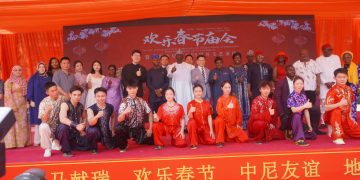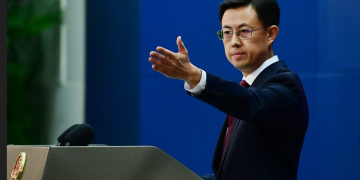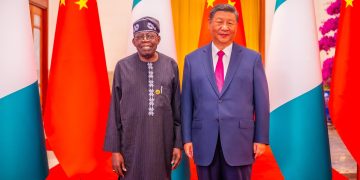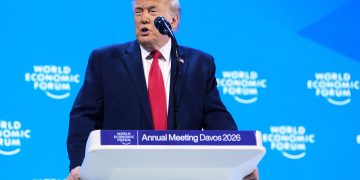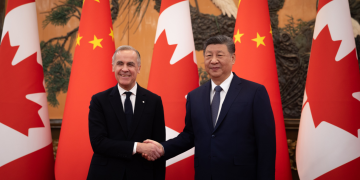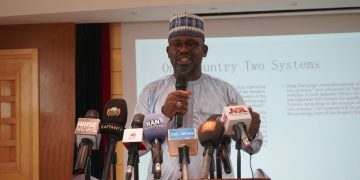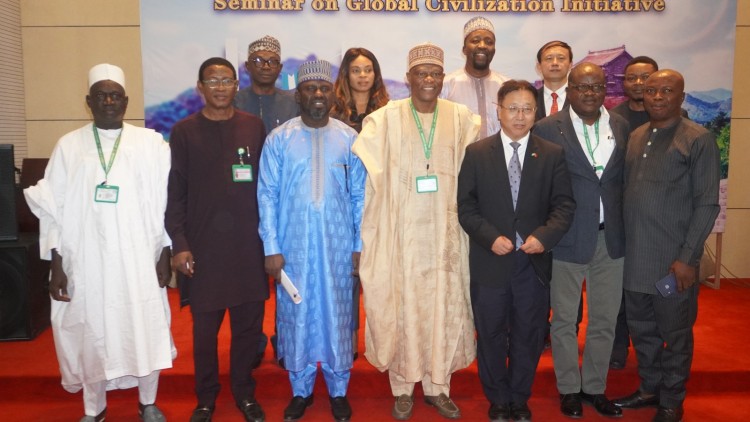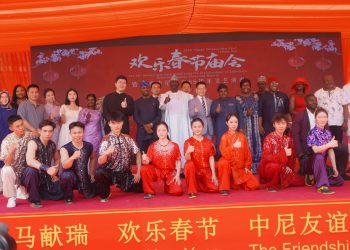In line with its commitment to fostering a community of shared future based on cultural harmony and people-to-people collaboration, the Chinese Embassy in Nigeria, in collaboration with the University of Abuja, on Tuesday, hosted a seminar on the Global Civilization Initiative (GCI) in Abuja, Nigeria’s capital city.
The seminar was attended by the Chinese Ambassador to Nigeria, Cui Jianchun; the Vice-Chancellor of the University of Abuja, Prof Abdul-Rasheed Na’Allah; the Dean of the Faculty of Social Sciences, University of Abuja, Prof Sule Magaji; the Cultural Counsellor of the Chinese Embassy in Nigeria, Li Xuda; the Head of Political Science Department, University of Abuja, Prof Sheriff Ghali Ibrahim, as well as members of the university community and Chinese nationals residing in Nigeria.
Ambassador Cui Jianchun, in his opening remarks, said the Global Civilization Initiative (CDI), proposed by President Xi Jinping in March 2023, is built upon principles of respecting the diversity of civilizations, embracing common human values, fostering innovation, and promoting people-to-people exchanges and cooperation.
He emphasized that GCI is part of President Xi’s three initiatives aimed at building a world of common prosperity through mutually beneficial cooperation, alongside the Global Development Initiative (GDI) and the Global Security Initiative (GSI).
The Chinese envoy reassured that China is dedicated to supporting Africa’s industrialization, agriculture modernization, and talent development.
In his address, Vice-Chancellor of the University of Abuja, Prof Abdul-Rasheed Na’Allah said for Nigeria to progress, it must draw inspiration from certain aspects of Chinese civilization such as discipline, patriotism, and commitment.
Prof Na’Allah said, “China’s civilization informs its development. China has the largest culture in the world. Nigeria is only 200 million. The Chinese feed themselves, they are industrialized, and disciplined, with strong loyalty to their nation and government.
“Their democracy is not Western but defined according to their culture. Why do we have to emulate America when, in truth, we only resemble them by nomenclature? When it comes to discipline, we do not emulate them. We spend more recklessly, we steal, we embezzle, and we are corrupt. We can only imitate in structure but not in reality.”
Prof Na’Allah emphasized the need to develop alongside culture and tradition, rather than forsaking them in the name of modernization. He pointed to China as an example of a country that has embraced its culture while achieving high productivity, despite not predominantly using English.
“Who says English is the solution for Nigeria? Our languages are part and parcel of our solution and if our people cannot think in their language, we cannot develop. We take modernity to be Westernization, whereas we can modernize without being Westernized,” he added.
Other speakers at the seminar expressed gratitude to the Chinese government for their interest in Africa’s development based on the principle of mutual respect and win-win cooperation.

